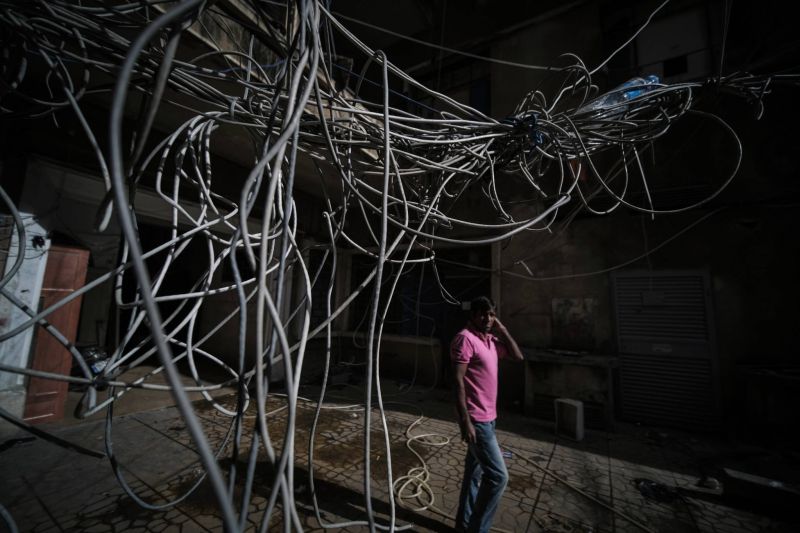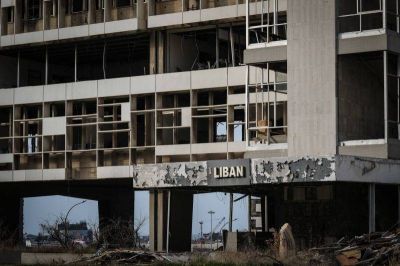
Electricity cables in Lebanon. (Credit: João Sousa/L'Orient Today/File photo)
Two days after a meeting between caretaker Prime Minister Najib Mikati and caretaker Energy Minister Walid Fayyad, the board of directors of Électricité du Liban (EDL) issued a statement on Thursday announcing that some of its tariffs have been reduced.
This decision follows demands by the Association of Lebanese Industrialists, the General Confederation of Lebanese Workers (CGTL) and major parliamentary blocs that EDL lowers the fixed subscription rates.
At Tuesday’s meeting, it was decided that EDL could “make periodic adjustments to the fixed and variable rates ... in line with fluctuations in the oil prices.”
EDL pointed out that the changes made also take into account the overall drop in the lira exchange rate on the market (LL93,000 to the dollar on Thursday) and the relative stability of the exchange rate on Banque du Liban’s Sayrafa platform (LL86,200 in recent days).
Here are the details of the change:
- The public supplier decided to cut fixed subscription and maintenance rates by 25 percent.
- It also reduced the price per kilowatt-hour paid by subscribers consuming more than 100 kilowatt-hours per month by one cent. This rate is now $0.26 per kilowatt hours instead of $0.27.
- EDL maintained the price per kilowatt hours at $0.10 for customers consuming fewer than 100 kWh per month.
- These changes will be applied to the January and February invoices that have yet to be issued.
Eliminate the 20 percent mark-up
EDL’s board of directors also indicated that it was not within its remit to change the exchange rate at which EDL’s bills are converted in lira, namely the Sayrafa rate averaged over the consumption period, in addition to a 20 percent, a rule imposed by BDL in a letter dated Dec. 8, 2022.
They added that EDL would write to Mikati, caretaker Finance Minister Youssef Khalil, Fayyad and BDL to have the Sayrafa rate used in converting March invoices without the 20 percent mark-up.
If approved, this elimination of the 20 percent measure will be applied to subsequent monthly invoices.
EDL’s press office told L’Orient-Le Jour that it must currently start collecting the invoices for the months of January and February.
EDL also plans to carry out “a study” to amend the rates for the invoices for the months following June 2023, taking into account oil prices, fuel quantities delivered, exchange rates and amounts collected.
This study will serve as the basis for a debate “with all parties concerned” with a view to further adjusting these rates.
EDL added that the tariff increase was part of the reforms demanded by Lebanon’s partners and “international donors,” likely an indirect reference to the World Bank.
This reform was part of the emergency plan for electricity approved by the Lebanese authorities in the summer of 2022. It called on subscribers to pay their bills and not “break the law” by connecting to the network illegally.
EDL was already in a bad condition before the crisis. Even in normal times, its capacity was insufficient to meet demand, and its disastrous financial situation meant that it could not buy enough fuel to provide more than a few hours of power a day.
The old tariffs had been fixed since 1994 on the basis of a barrel of oil at $23. EDL’s tariffs were modified for the first time in November 2022, with the stated aim of restoring its finances until it could rehabilitate its equipment and infrastructure.
In the meantime, the supplier must rely on Treasury advances and fuel supplied via an agreement concluded in the summer of 2021 between Lebanon and Iraq and extended once since.
This article was originally published in French in L’Orient-Le Jour. Translation by Joelle El Khoury.
